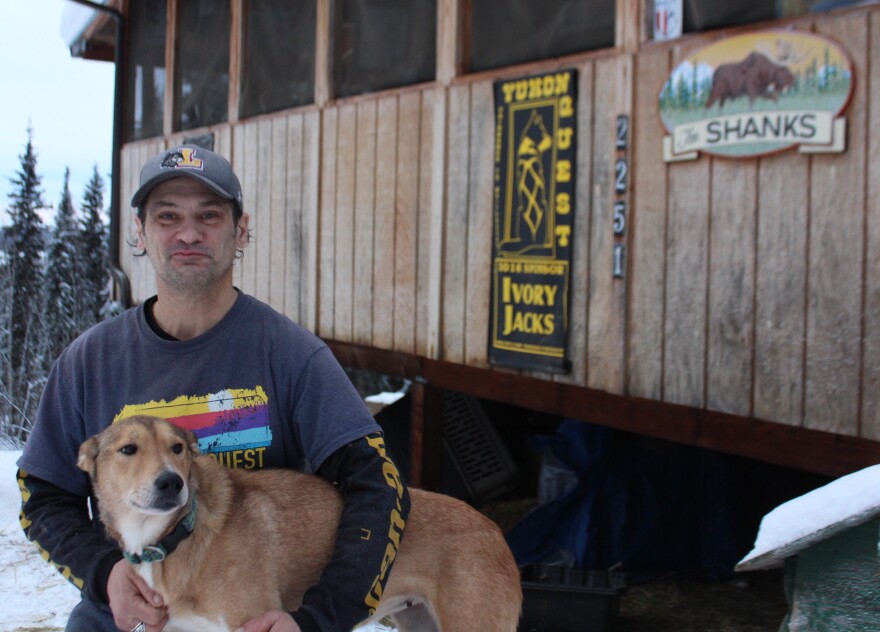It’s been three years since longtime musher Hugh Neff competed in the Yukon Quest, but the 53-year-old said he’s as motivated as ever to race.
“I’ll always be competitive, you know, growing up with Michael Jordan and Walter Payton,” he said from his Fairbanks home this week. “It’s just the way I am.”
Neff is a colorful and divisive figure in the world of dog mushing. He has won the Quest twice. But he was banned from the race — and the Iditarod — after one of his dogs asphyxiated during the Quest in 2018. Veterinarians determined the dog had multiple preventable health problems. Neff disputed the judgment, but the experience soured him on big races for several years.
He knows there are people skeptical of his return to the race this year.
“I'm willing to be judged and vilified or whatever people are gonna say, but most of them— they don't know me,” he said.
Race officials said Neff will go through the same dog checks that all mushers do.
“He’s met all the protocols that the restrictions required him to do,” said Race Marshal Doug Grilliot. “We’re looking forward to having him on the trail and having him back in the big race next year.”
In the days before Saturday's race, Neff is putting final runs in with his Quest team, taking them on hour-long trips through Chena River valley trails northeast of Fairbanks, with temperatures dropping to negative-25 degrees Fahrenheit.
On a recent run, he was calm and self-assured. His thoughts bounced from national politics (“My father was a lifelong Republican, but he’d hate where the party has gone”) to the history of dog mushing, to his new found veganism (“I’ve lost 20 pounds, I feel sort of weak though”).
Over the past couple of years, Neff has helped his wife, Olivia Shank Neff, work toward her finish last year in the 1,000-mile Quest. She said little has changed about her husband’s personality.
“I think he has more self-control — but nothing interesting,” she said.
But he has made plenty of changes to his lifestyle.
He's been drinking less, doing more chores and watching less television. Neff is the main caretaker for their approximately 40 sled dogs, couple of pigs and goats, and two rescue dogs that escaped the destiny of a meat factory in Thailand.
The couple recently moved from Tok into a new house near Fairbanks. The homestead belonged to LeRoy Shank, Olivia’s grandfather, and one of the cofounders of the Quest, who died last spring. He'd spent the last few years losing mobility and neurological function due to Parkinson’s disease. LeRoy’s death hit them both hard: They see themselves as torchbearers of a mushing legacy.
Inside their log home is the table where Neff said the idea of the Quest came about (Though most accounts say the race was dreamt up at the Bull’s Eye Saloon). There are Quest banners and trophies lined up in every corner of the house.
Neff said he feels connected to the spirit of the race and the people who make it happen. He's been doing community work to promote the Quest, giving talks in schools in a characteristic "Cat in the Hat" hat, and traveling to off-road Alaska Native villages several times a year to teach kids about mushing and dog care.
He's curmudgeonly about the younger generation of dog mushers tied to social media. He said he doesn’t know if they have enough respect for the history of mushing and the legends who created the Quest and races like it.
“I like to call the new age 'internet dog mushing' — where everybody's just gossiping on the internet,” he said. “Most of these folks don't even know how to put a harness on a dog.”
He's running a young team this year, and admits one of the "internet mushers" will likely win this year’s Quest. He’s said he's just focused on keeping his dogs healthy and happy.
But he’s also preparing for a team that can vie for a 1000-mile win — when it returns.



